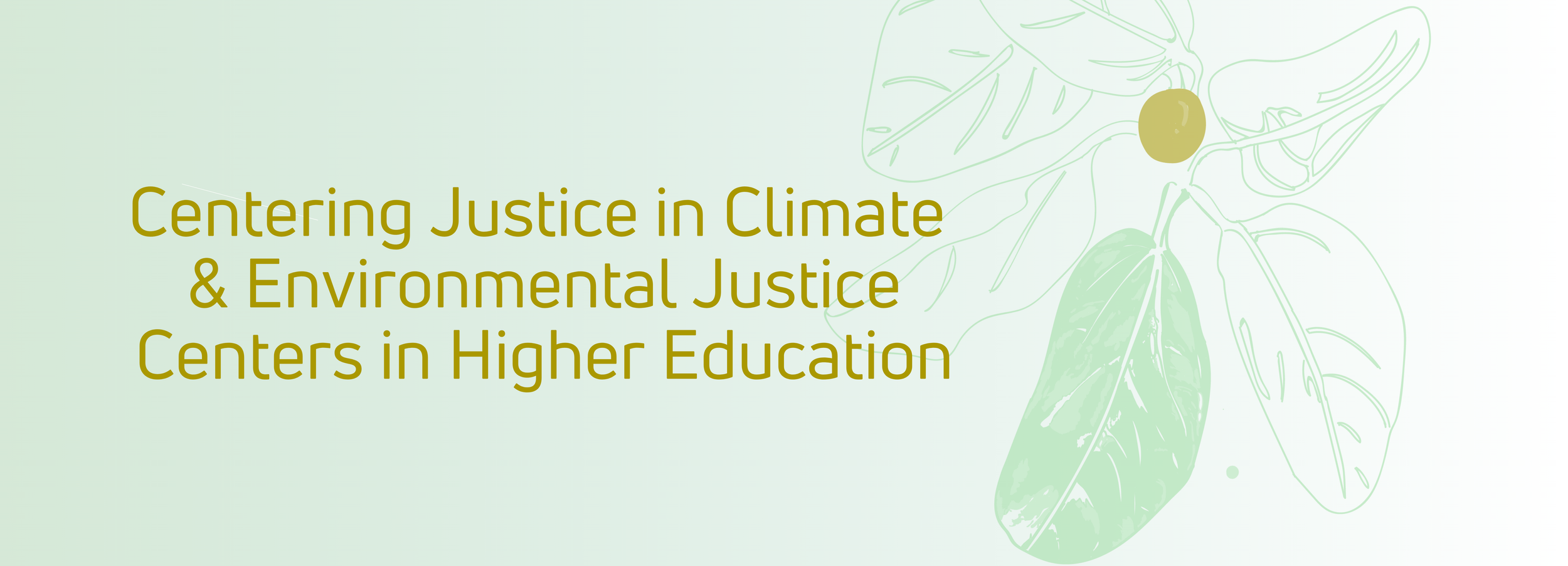Climate justice demands meaningful frontline solutions now.
While a growing number of colleges and university centers are committed to climate and environmental justice (EJ), and private philanthropy and the public sector are providing investments in unprecedented amounts, inclusive and equitable ways of supporting the movement often fall short of what is needed.
In response, the Tishman Environment & Design Center held the Centering Justice Symposium in January 2024 to meet this unique opportunity to catalyze needed transformation in support of EJ. The symposium brought together climate and EJ leaders and organizations, allied academic institutions, and relevant philanthropists to explore how higher education can better align with movements and advance just partnerships. The Centering Justice Manifesto emerged from their discussions, presenting three salient areas of action:
Establish just, equitable, transparent partnerships, based on reciprocity and trust.
Ensure internal assessment and accountability systems within universities, while promoting alignment from philanthropy and federal agencies
Explore formation of an ongoing community of practice with trusted university centers and EJ partners that models and supports academic-community partnerships
Following the Centering Justice symposium, it became clear that a need existed for continued discussion and action. The Center is committed to leading and supporting ongoing work connected to the Centering Justice symposium. While these efforts focus chiefly on relationships and practices between academia and EJ communities, it is done in consideration of a growing attention on EJ—from federal funding to private philanthropy.
Our ongoing Centering Justice work is grounded in symposium’s stated objectives and priorities, which aims to:
Center Frontline Communities and EJ Voices: To hear directly from environmental and climate justice communities about their wishes, wants, and needs, in service of establishing more effective and aligned relationships with universities,
Build Relationships and Networks: To build new and strengthen existing relationships and networks that inspire long-term commitments that advance the priorities of environmental and climate justice communities.
Share Knowledge and Practice: To surface best practices and approaches for partnerships between university centers and environmental and climate justice organizations and communities.
Resource the Movement: To illuminate the private and public funding opportunities for advancing the environmental and climate justice agenda and how university centers can provide the support to access these opportunities.
Resource kit for equitable partnerships
These resources provide valuable insights and practical strategies to ensure that academic-community partnerships reflect and uphold environmental justice principles.


